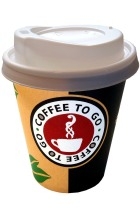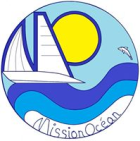A Lighter Footprint on the Hop

I work in yacht management, and I travel A LOT. I am currently averaging four flights a week, and many of my colleagues are hopping from one side of the Atlantic, or from one hemisphere to the other, on a regular basis.
In yachting, many of us have carbon footprints that are much bigger than we would like them to be. By definition, vessels are constantly on the move and we have to go to them, whether they are in the port down the road or at anchor off some tiny spot in the Seychelles.
We can't alter the necessity to get on a plane to visit a boat but, with a bit of forward planning, there are lots of small changes we can make to our travel habits that will have a big effect on the environment.
Single Use Plastics
Airports are packed full of single-use plastics. No one stays longer than a few hours in an airport if they can help it and, with so many people coming through, there's a certain logic to plastic-wrapped take-away food, throwaway cutlery and hygienic double-packaging on everything.
I recently missed a connection and got stuck in Frankfurt airport for six hours, which included two meal times. According to the health app on my phone, I walked over 3km in the airport looking for food that was not wrapped up in a plastic bag or served in a plastic pot. But I found some – in a paper bag, and something I could eat with my hands instead of with plastic cutlery. And I’ll bet that it was a whole lot fresher than any of the plastic-wrapped stuff.

Bottled Water
Airport bottled water is some of the most expensive in the world, with vendors charging whatever they like since you can’t bring your own in. More and more airports are offering recycling facilities now, but a plastic bottle is still a piece of plastic, and it will never change into anything else, or biodegrade and disappear. Travelling with your own refillable water bottle in your hand luggage makes so much sense, saves you money, keeps you hydrated during those long air-conditioned waits, and I’ve found that airport bars will happily fill it up with nice chilled water for you once you’re through security. Just learn from my mistakes and keep it upright and a little open on the plane, to avoid any leaks in your bag.
Most flights still provide you with drinks and complementary snacks, which are almost all wrapped up in yet more plastic (with the exception of a swiss airline, from my experience, who hand out really tasty pastries in paper bags). There is absolutely nothing wrong with asking for your drink to be served in your water bottle, or even bringing your own thermos mug for coffee or tea.

Palm Oil
A lot of the in-flight snacks also contain palm oil which is being used more and more frequently in prepared food products (crisps, biscuits, chocolate, cereal bars…) due to its low production costs. Unfortunately the farming techniques used to produce it are having a devastating effect on ecosystems in Indonesia and Malaysia, for example, where natural habitats are being destroyed to make way for palm plantations. So check out the ingredients, and if there is palm oil in there, give it back and explain why. Better still, bring your own palm oil-free snacks!
The 5 Gyres Institute in Los Angeles has recently launched a campaign to urge coffee drinkers to go #topless4oceans when ordering take-away drinks, with the tagline “You can walk without spilling, right?” Almost all disposable hot drink cups are NOT recyclable as they have a polyethylene lining to make them watertight, and adding a plastic lid to the cup only makes matters worse. And when you think about it, sucking on a piece of warm plastic is pretty gross, and almost certainly not doing you any good. So unless you’ve brought your own cup with you, consider going #topless4oceans when travelling!

Hotel Laundry Services
Many hotels are starting to make an effort to reduce their environmental impact, including asking you to sort the towels that need washing from the ones that don’t to reduce water and detergent use, or using refillable shower gel and soap dispensers. Some even remove mini bars from guest rooms to reduce electricity consumption. But many still offer individually wrapped mini toiletries; the worst I’ve seen so far were plastic-wrapped nail files! If you find yourself in a hotel with is type of freeby, bring it up at the reception desk when you check out. Hotels are generally glad of feedback, and would rather hear it from you in person than read about it in a negative review online.
So when there is no other option than to travel by plane, remember:
-
Pack your own water bottle
-
Take a thermos mug or go #topless4oceans
-
Bring your own snacks
-
Shop savvy and avoid plastic-wrapped food
-
Send back palm oil
-
Talk to your airline, your hotel and your fellow travelers!
These little actions could have a big impact if we all started doing them and the environment - and all of us - will benefit in the future.
Related Articles:
Mission Ocean: Stop Using Microbeads!
Mission Ocean: What Goes Around, Comes Around


Post your comment
You cannot post comments until you have logged in.
Login to post a commentComments
No one has commented on this page yet.
RSS feed for comments on this page | RSS feed for all comments